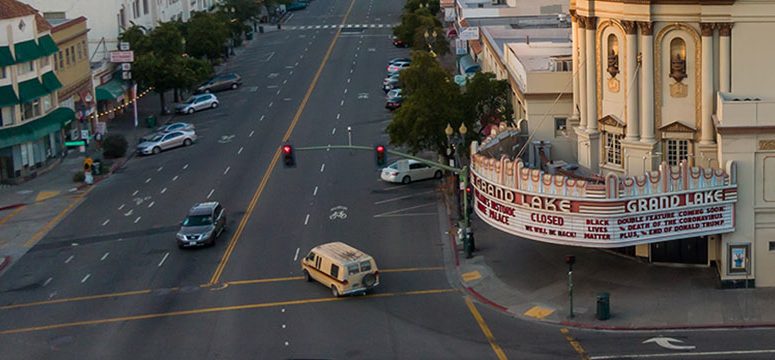The transfer of power in the House of Representatives gives transportation reformers plenty to wring their hands about. The loss of James Oberstar was a shock, and folks are still synthesizing what it means to have John Mica in charge of the next transportation bill.
But flying under the radar is another big shift with potentially enormous consequences. The Transportation and HUD subcommittee on Appropriations is getting a new master too. And livability advocates are alarmed.
Rep. Tom Latham (R-IA) made it onto the League of American Bicyclists’ Trash Talk list this spring when he said every biker is “one less person paying into the transportation trust fund.”
The Final Say on Transpo Funding
If Latham is confirmed as the new chair of the Transportation Appropriations Subcommittee, he’ll have the power of the pursestrings. After all, the Transportation and Infrastructure Committee can authorize any program they want, but if the appropriators don't fund it, it doesn't exist.
Latham is a close personal friend of presumptive Speaker John Boehner, who opposes Obama’s infrastructure push and believes he has mandate to cut government spending. We’ve already heard that Mica is wants to revisit discretionary grant programs like TIGER and the Sustainable Communities Regional Planning program, and advocates are bracing for a fight to preserve bike-ped funding.
But the fight won’t be won in the Transportation and Infrastructure Committee alone – it’ll continue in Appropriations, where advocates will need to convince a fiscal conservative with little to no understanding of the need for walkability, smart growth, or urban transit. He’s made it clear that his priority in the subcommittee is “the efficient movement of agricultural products” on rural roads and “the importance of maintaining the vast road structures that we have today in rural America.”
Livability vs. Open Spaces
The concept of livability is foreign to Latham, who talks about the “big town of 168 people” that he comes from. “Rush hour in Alexander, Iowa was when Nancy Schermer went home from the bank at 3:00 in the afternoon,” he told livability champions Robert Puentes and John Norquist last year when they testified before his committee. He said “the notion of livability and people living close together… I would not consider that to be livability. I like the open spaces.” He suggested “revising” the term “because I think what is livable to some might not be livable to others.”
Then he launched into this ode to suburban sprawl:
Some assume that the aging and young populations all want to live near public transportation and that jobs are moving to the cities and that we should break large areas into villas surrounded by public transportation. The reality probably is closer to the notion that the use of cars today is a larger part of our daily life than ever before, as both parents of young families today work full-time, carry out a lot of different tasks in a day. I think it is important to note that many jobs are moving out of the cities to suburban areas where the skills are and the new opportunities are, where schools are, you could say, unfortunately, oftentimes better, and the crime rates can be lower. These characteristics are going to also influence people in their choices of where they are going to live. If people continue to migrate to the suburbs, the marketplace, I think, will dictate costs and land uses.
His one glimmer of understanding, however, comes when he talks about his 92-year-old mother who recently lost her breast to cancer and lost her driver’s license. “Of the two, it was not even close," he said. "Losing her driver's license and losing her mobility was far more devastating to her than her medical condition.”
He explained that “there is no alternative for her, really, as far as getting anywhere, other than to drive herself.” He said she had to drive 10 miles to get a gallon of milk or see a doctor. He didn’t overtly say that his mother’s situation had become “unlivable” and that a compact, walkable community would have served her needs better – but he seemed to be getting close.
Several times, he has criticized the Obama administration for what he considers to be hypocrisy in expanding the reach of broadband “so that we can keep people in rural areas, keep them dispersed out in the countryside, and in fact what we are talking about is more urban sprawl.”
Mixed Messages on Rail
Latham came in during the last Republican wave, in 1994, and he’s hewed to the anti-tax, anti-spending mold.
He did support more money for infrastructure investment in the stimulus, saying it “would have actually created more jobs in that regard--rather than some of the other places that the money has gone.” Latham has also questioned whether Amtrak subsidies are justifiable or sustainable, but he does support rail, even in his rural state of Iowa, “where we have got to maintain the connectivity.” He says it “is extraordinarily important to us for the smaller communities, as far as economic growth.” He’s spoken out for better Amtrak service to the population centers in Iowa, rather than just speeding trains through the rural parts.
In the March 2009 hearing, he reminisced about ordering a bicycle through mail order from Montgomery Ward, and “that my bicycle was delivered in Alexander, Iowa, in a town of 160 people on the rail.” He lamented that “that system has been gone for a long, long time. There is no rail service there, and the whole thing has changed.”






